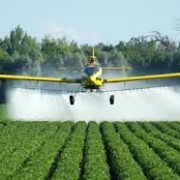What about applying sugar with your post emergent herbicides or with your foliar applications of nutrients?
 A few years ago I heard many crop advisors and producers laugh when it was mentioned to use sugar. More recently there is more and more credence put to the use of sugars in crop production. There are a number of opinions as to why it works. I will outline some below.
A few years ago I heard many crop advisors and producers laugh when it was mentioned to use sugar. More recently there is more and more credence put to the use of sugars in crop production. There are a number of opinions as to why it works. I will outline some below.
Farmers doing on-farm research in Nebraska have documented that stalk quality has been improved where they applied sugar in their post spray. Exact reasons for this are thought to be related to improved microbial activity around the plants to help ward off diseases.
Utah State found that the addition of sugar enhance the beneficial insects such as lady beetle and lace wings which may have improved production. A study by USDA/ARS has also shown that sugar enhance the survival rate of female lady beetles and egg production.
Other studies have shown that a beneficial bacteria associated with roots and leaves called “pink pigmented facultative methylotrophs” (PPFMs) are enhanced by the addition of sugar. These PPFMs excrete auxins and cytokinins, that can influence root growth, and reduce effects of high temperatures and drought stress. Some also feel that the PPFMs may provide antibiotics to the crop to keep them healthier and ward off diseases.
Still others know that the sugar acts as a humectin which decreases the relative humidity at which the spray solution will dry. This results in the product being available longer for uptake by the plant. If the spray solution is an herbicide, this will mean more time for herbicide activity and greater weed control. If it is a nutrient solution, it will mean more time for the nutrients to be absorbed by the leaf before it dries and is unavailable for uptake.
Some farmers have felt that the sugar added to the spray simply makes the solution sticky and will adhere to the leaf making the herbicide more effective. Whatever, the reason, the small cost of fifty cents per acre seems for most users to be money well spent.




